Are you suffering from osteoarthritis of knee joint pain? Is there any treatment available for this problem? Well, here is some good news for you; We have found Ayurvedic medicine to help cure arthritis.
Arthritis is a common disease which affects the joints. In case of severe cases, it may lead to disability. There are various types of arthritis, such as rheumatoid arthritis, gout, lupus etc.
There is no single effective treatment option for knee osteoarthritis. Therefore, it is important to combine multiple modalities to achieve optimal outcomes. Ayurveda offers natural remedies that can complement conventional medical care. This article provides information regarding the role of ayurvedic medicine in treating knee osteoarthritis.
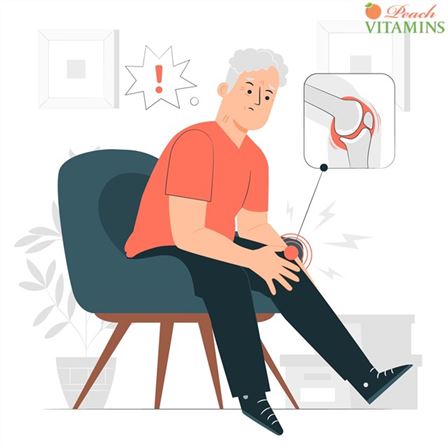
What Causes Osteoarthritis?
Osteoarthritis is a degenerative joint disease characterized by pain, stiffness, swelling, and loss of function due to cartilage damage. The most common type of arthritis, osteoarthritis affects approximately 32.5 million Americans.
There are many factors that contribute to the development of this condition including genetics, age, injury, obesity, and heredity. However, there is no cure for osteoarthritis. Treatment focuses on relieving symptoms and improving mobility.
Some treatments include physical therapy, medication, weight management, and surgery. Some medications may be used alone or in combination with another treatment option. Surgery is typically reserved for those who experience severe pain and disability.
Risk Factors for Osteoarthritis
There are many risk factors associated with osteoarthritis including age, gender, obesity, occupation, genetics, previous injury, family history, and certain medical conditions.
One of the most common causes of osteoarthritis is overuse of joints, especially the knees. Overuse injuries include repetitive motions such as kneeling, squatting, climbing stairs, running, jumping, and playing sports. These activities put excessive stress on the knees, causing them to become stiff and painful.
Another cause of osteoarthritis includes trauma to the joints, such as sprains, strains, fractures, and dislocations. Trauma may occur during sporting events, accidents, or falls. This type of injury often leads to inflammation and scarring of the joint tissues, which eventually results in arthritis.
Symptoms of osteoarthritis typically begin gradually, usually after 50 years of age. However, some individuals develop symptoms at younger ages, particularly those who participate in extreme physical activity.
Symptoms include joint pain, tenderness, stiffness, crepitus (grating), and limited range of motion. Pain occurs when pressure builds up between bones due to damage to the cartilage cushioning the ends of the bones.
Knee arthroplasty is considered the last resort treatment for severe cases of osteoarthritis because it requires extensive rehabilitation. Rehabilitation helps restore strength, flexibility, and function to the joint. Physical therapists teach patients exercises to strengthen muscles surrounding the joint and improve balance.
Although study results vary, some research shows they may have up to 30% more falls and have a 20% greater risk of fracture.
Source: arthritis.org
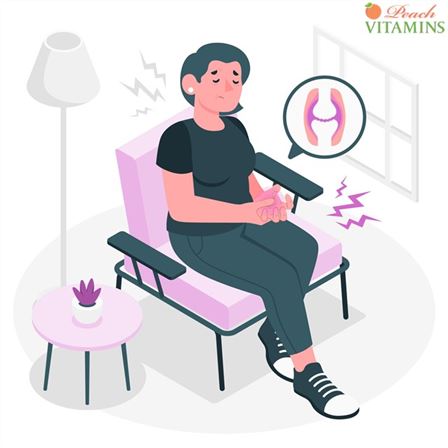
An Ayurvedic Approach to Osteoarthritis Treatment
There are many types of treatments available for this condition, including physical therapy, medication, injections, surgery, and lifestyle modifications. However, there are some natural remedies that may help ease symptoms associated with osteoarthritis. One of these is Ayurveda.
Ayurveda is a traditional medicine system practiced in India since ancient times. This method focuses on treating the root cause of illness rather than just the symptoms. Ayurvedic practitioners believe chronic conditions like osteoarthritis result from imbalances in our body’s three doshas—Vata, Pitta, and Kapha. These dosha imbalances lead to excess heat, coldness, dryness, or dampness within the body.
To treat OA, ayurvedic doctors prescribe herbs and oils that cool down Vata dosha, balance Pitta dosha, and reduce Kapha dosha. They also recommend yoga postures that strengthen muscles and joints, improve circulation, and relieve stress.
While not every treatment option works for everyone, Ayurveda offers a holistic approach to healing that may be beneficial for those suffering from osteoarthritis.
Ayurvedic Herbal Treatments
Ayurvedic herbal remedies include turmeric, ginger, and black pepper. These ingredients work together to reduce inflammation and ease discomfort. They also improve digestion, boost energy, and strengthen bones.
Ginger: Ginger has been used for centuries to stimulate digestion, relieve nausea, and soothe sore throats. It contains anti-inflammatory compounds called gingerol, which have been shown to reduce pain and swelling in arthritis sufferers.
Turmeric: Turmeric is one of the most powerful spices known to man. It has been used medicinally for thousands of years. Turmeric contains curcuminoids, which have antioxidant properties and are believed to prevent the formation of free radicals. Free radicals contribute to the development of arthritis.
Black Pepper: Black pepper contains piperine, which increases absorption of nutrients into the bloodstream. It improves blood flow and circulation, relieves muscle spasms, reduces inflammation, and stimulates digestion.
Each of these herbs has its own unique benefits, making them effective at treating different types of arthritis.
Gender—Women are more likely to develop OA than men, especially after age 50.
Source: cdc.gov

Which Thailam Is Best For Osteoarthritis?
Thailam is a traditional Ayurvedic medicine used to treat arthritis. It contains herbs and minerals that help relieve pain and inflammation. The most common form of thailam is called Triphala, which comprises three fruits: Amalaki (Indian gooseberry), Haritaki (Ashwagandha) and Bibhitaki (hibiscus).
Triphala is considered a powerful anti-inflammatory agent because it contains antioxidants, vitamins, amino acids and enzymes that fight free radicals. Free radicals cause cell damage and inflammation, so triphala helps protect against these effects.
There are many forms of thailam available, including tablets, capsules, powders, teas, oils, creams and gels. Each type of thailam works differently depending on the condition being treated.
If you’re looking for natural remedies for osteoarthritis, try thailam. It’s safe, effective and affordable.
Is Ashwagandha Good For Osteoarthritis?
One of the primary treatments used to restore balance is Ashwagandha. This herb is known for its ability to reduce inflammation, relieve stress, and improve digestion.
Ashwagandha is commonly taken as a supplement because it contains active compounds called shogaols. Shogaol is believed to be effective at reducing inflammation.
Shogaols also help regulate blood pressure, boost immunity, and stimulate the nervous system. They may also prevent cancer growth and protect against heart disease.
When combined with other herbs, Ashwagandha helps treat conditions including asthma, diabetes, gout, rheumatoid arthritis, and skin disorders.
If you suffer from OA, consider taking Ashwagandha supplements.
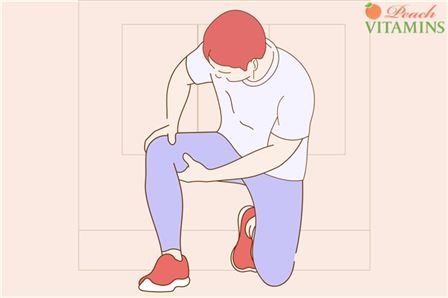
Which Guggul Is Best For Osteoarthritis?
Guggulu (pronounced guh-goo-loo) is a plant native to India that was used in Ayurveda medicine thousands of years ago. Today, guggulu is still widely used to treat arthritis because it contains anti-inflammatory properties.
There are two types of guggulu available today: organic and nonorganic. Organic guggulu comes from plants grown naturally without pesticides or herbicides. Nonorganic guggulu is made synthetically from chemicals. Both types contain the same active ingredients, but organic guggulu is superior because it doesn’t expose consumers to harmful chemical residues.
Both types of guggulu work well for osteoarthritis because they help reduce inflammation and pain. However, some studies suggest organic guggulu may be better than nonorganic guggulu because it contains higher concentrations of bioactive compounds.
Which Ayurvedic Oil Is Best For Arthritis?
Ayurvedic oils contain powerful anti-inflammatory properties that relieve pain and discomfort associated with arthritis. There are two main types of ayurvedic oils used to treat arthritis: kapha and vata. Kapha oils are heavier than vata oils, making them better suited for treating arthritic conditions.
Kapha oils are made from plants native to India, such as turmeric, ginger, and black pepper. Vata oils are lighter than kapha oils, and are made from plants native only to South America, such as aloe vera and avocado.
Both types of oils contain anti-inflammatory compounds called triterpenoid, which work by reducing inflammation and relieving pain.
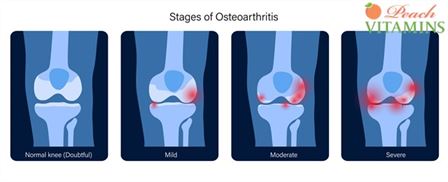
Is Heat Good For Osteoarthritis Of The Knee?
Heat therapy is a popular treatment option for osteoarthritis of the knee. But does heat actually help relieve pain and improve mobility? Or is it just another placebo effect?
There are two types of heat therapies used to treat arthritis: moist heat and dry heat. Moist heat involves soaking wet cloths in hot water and applying them directly to the affected area.
Dry heat uses heated pads, or bricks placed against the skin. Both methods work by increasing blood flow and circulation to the joint. This helps reduce inflammation and swelling, and relieves pain.
Recognizing the Potential of Fruit Extracts
Fruit extracts are becoming increasingly popular among consumers who are seeking natural remedies for various health conditions. While fruit extracts aren’t considered medicine, they can offer benefits similar to prescription drugs.
One example of a common fruit extract is apple cider vinegar. Apple cider vinegar contains acetic acid, which is believed to relieve joint pain and inflammation. Another example is grape seed extract, which is used to treat arthritis. Grape seed extract contains antioxidants that protect against oxidative stress, which is linked to osteoarthritis.
While there are no studies proving that fruit extracts can cure osteoarthritis, they may provide relief from symptoms. So, if you suffer from knee pain, consider trying a few different fruit extracts to see which one’s work best for you.
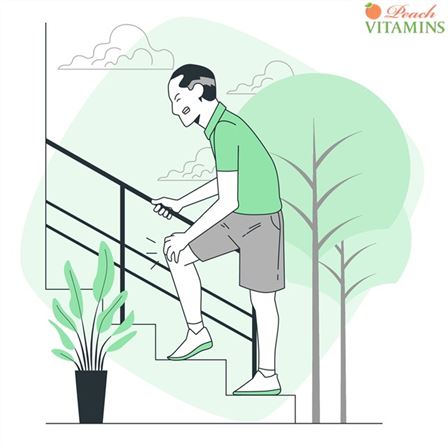
Are There Any Side Effects or Contraindications?
The treatment of knee osteoarthritis depends on the severity of your condition. If you have mild symptoms, you might try taking aspirin or ibuprofen to relieve pain and swelling. You might also take supplements like glucosamine and chondroitin sulfate to support healthy cartilage.
The management of knee osteoarthritis usually includes physical therapy, weight loss, and lifestyle changes. Your doctor might recommend using a cane or walker to ease pain and prevent falls. He or she may also suggest exercises to strengthen muscles around the knee.
If these treatments don’t bring enough relief, your doctor may prescribe stronger medications, including nonsteroidal anti-inflammatory drugs (NSAIDs), cortisone injections, or surgery.
While there are no side effects associated with Ayurvedic medicine, you should still talk to your doctor before taking any supplements or herbal products. Some medications interact negatively with other drugs or herbs, so it’s always wise to consult your physician before starting any new supplement regimen.
Ayurvedic Medicine for Osteoarthritis of Knee: Final Thoughts
Ayurvedic medicine for osteoarthritis of knee pain has been proven effective in treating this painful condition. Ayurvedic drugs for the treatment of osteoarthritis contain ingredients that help improve joint function and ease pain. They’re often combined with yoga and meditation techniques to promote overall wellness.
Would you like to know more about the Ayurvedic sciences? Schedule a free consultation with Ayurvedic practitioner Cosmic Mike. Learn about Ayurvedic formulations and how they can treat many ailments. Get started today!
